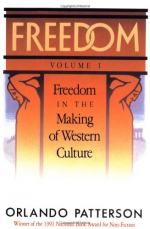
|
| Name: _________________________ | Period: ___________________ |
This test consists of 15 multiple choice questions and 5 short answer questions.
Multiple Choice Questions
1. What does Augustine basically end up doing to the role of personal freedom?
(a) Emphasizing it.
(b) Downplaying it.
(c) Encouraging it.
(d) Playing it up.
2. Where are the greatest conversion rates?
(a) In upper class societies.
(b) In middle class societies.
(c) Among the Hellenic thinkers.
(d) In regions where slavery predominates.
3. Whose thinking basically molds the early church and shapes generations of theological thinkers?
(a) Peter's.
(b) Mark's.
(c) John's.
(d) Paul's.
4. What is sin considered to be?
(a) From Adam and Eve.
(b) An influence of Satan.
(c) A form of spiritual slavery that humans are freed from.
(d) Something from which only slaves suffer.
5. Why does Paul say people suffer?
(a) People suffer because of past life mistakes.
(b) People suffer because of their sins.
(c) People suffer because of others.
(d) People suffer because of fate.
6. By what is slavery somewhat undermined in late 7 A.D.?
(a) Mass conversion to Judaism.
(b) Mass conversion to Islam.
(c) Mass conversion to Buddhism.
(d) Mass conversion to Christianity.
7. What is one of the phases?
(a) The birth of Jesus.
(b) The Crucifixion.
(c) The prophetic phase of Jesus and the Jesus movement.
(d) The baptism of John.
8. Why does Augustine view personal freedom as a form of emptiness that doesn't result in inner peace?
(a) It is selfish.
(b) It does not benefit him.
(c) It does not help others.
(d) It does not result in reconciliation.
9. According to Patterson, how many phases exist in the development of early Christianity?
(a) Ten.
(b) Two.
(c) Eight.
(d) Four.
10. What happens to the wretched who convert?
(a) They go to hell.
(b) They are damned.
(c) They must tithe.
(d) They are purified of sin.
11. Who represents Reactionary Stoicism?
(a) Caitlin.
(b) Cato.
(c) Charlemagne.
(d) Carl.
12. Augustus' rule is at the expense of whose civic freedom?
(a) The lower classes.
(b) The upper classes.
(c) The slaves.
(d) The middle classes.
13. How does Augustus change his image and his manner of rule during his reign?
(a) From military oriented to personality oriented.
(b) From personality oriented to politically oriented.
(c) From personality oriented to military oriented.
(d) From military oriented to politically oriented.
14. How is Rome similar to Greece?
(a) It led by the same ruler.
(b) It's people speak the same language.
(c) It is the same shape.
(d) It is also a slave-based economy.
15. He extols the virtue of the ruler as what for the populace?
(a) A god.
(b) A wife.
(c) A strong hand and firm master.
(d) A provider and protector.
Short Answer Questions
1. Freedom is mainly the domain of whom?
2. Why does Reactionary Stoicism appeal to the Roman upper classes?
3. How do many in the nobility view the princeps?
4. How is the crucifixion of Jesus referred?
5. As what do his views become known?
|
This section contains 496 words (approx. 2 pages at 300 words per page) |

|




